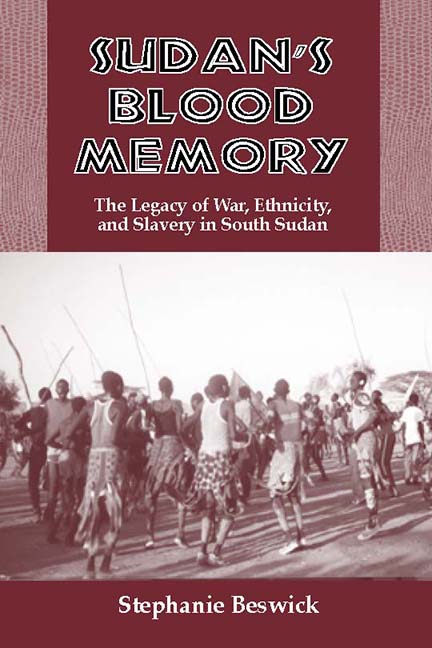Book contents
- Frontmatter
- Dedication
- Contents
- Maps
- Preface
- Acknowledgments
- A Note on Orthography and Languages
- A Note on Sources
- Map
- 1 Introduction
- 2 Geography and Brief History of Sudan
- 3 The Changing Nilotic Frontier
- The Ethno-Historical Formation of Southern Sudan
- The Ascendancy of the Dinka in Southern Sudan
- 9 Grain, Cattle, and Economic Power
- 10 Totemic Religion
- 11 Human Sacrifice, Virgins, and River Spirits
- 12 Priests, Politics, and Land
- 13 Ethnic Expansion by Marriage
- 14 Sovereign Nations within the Dinka
- Foreign Intrusion and Its Consequences
- Notes
- Glossary
- Bibliography
- Index
10 - Totemic Religion
from The Ascendancy of the Dinka in Southern Sudan
Published online by Cambridge University Press: 23 July 2019
- Frontmatter
- Dedication
- Contents
- Maps
- Preface
- Acknowledgments
- A Note on Orthography and Languages
- A Note on Sources
- Map
- 1 Introduction
- 2 Geography and Brief History of Sudan
- 3 The Changing Nilotic Frontier
- The Ethno-Historical Formation of Southern Sudan
- The Ascendancy of the Dinka in Southern Sudan
- 9 Grain, Cattle, and Economic Power
- 10 Totemic Religion
- 11 Human Sacrifice, Virgins, and River Spirits
- 12 Priests, Politics, and Land
- 13 Ethnic Expansion by Marriage
- 14 Sovereign Nations within the Dinka
- Foreign Intrusion and Its Consequences
- Notes
- Glossary
- Bibliography
- Index
Summary
“Earth always had people but we descended in a boat to earth (my clan believes) at Patundur, which is where the Twic started to fission.”
Atem Garang Deng and Deng Kuek Atem, Eastern Twic Dinka“Totems are most powerful and created by the creator for our protection. All clans have some symbols of protection and power.”
Bona Acuil, Rek DinkaToday, as in historical times, all Southern Sudanese are highly religious, practicing simultaneously their ancient religions alongside newly acquired Christianity, and to a far lesser degree, Islam. One of the most important aspects of Dinka cosmology is observance of totems. This aspect of their religion is only one in a pantheon of ideas about the world of nature around them. The most powerful Dinka spirit in their belief system is that of “Deng,”
who was once a great living leader. Col Mayen Kur states: We came with our god, Deng, and also Garang and a stone called Kur, these were our gods. This Deng is the god of all of the Dinkas. Christianity and Islam differ from the Dinka in that when we go to our god, Deng, we kill a bull or a goat for him but when you pray to Christ or Muhammad, you pray without killing anything. When there is drought we ask Deng to make rain and it will fall. Christianity and Islam do not make rain fall. We can go to Deng and ask him to stop rain from falling…. There is a stage where if there is too much rain, the grain will get spoiled. Our own religion heals people. Deng is more powerful for curing cows than Western doctors. We bring out a ram, we kill it and ask Deng to cure our cows.
Most prominent in Dinka oral migration, histories, however, is the observance of clan totems along with the acquisition of new ones along the way as symbols of protection.
Totemism
Within the Dinka culture and history totems are very important. These Dinka “symbols of protection” aided in wars against hostile neighbors, cured the sick, and protected the people from the elements. Ultimately some totems could also bring great wealth.
- Type
- Chapter
- Information
- Sudan's Blood Memory , pp. 98 - 107Publisher: Boydell & BrewerPrint publication year: 2004



